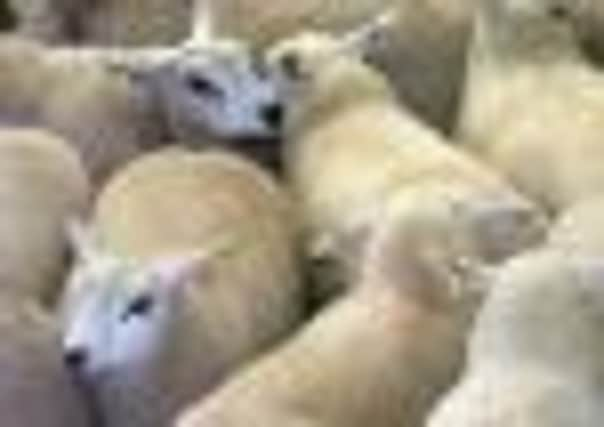Stores giant seeks good news from EID


The experiment is taking place in the Morrisons abattoir at Turriff, Aberdeenshire, which processes half a million lambs a year from more than a thousand Scottish farms.
Britain’s fourth largest retailer has an interest both as a big meat buyer and as a farmer. Morrisons runs beef and sheep on a thousand acres in Ayrshire and uses the enterprise to try out ways in which its suppliers could cut costs.
Advertisement
Hide AdAdvertisement
Hide AdThe idea of the Turriff experiment is to supply information which will help farmers make breeding decisions at farm level.
Morrisons is working with Quality Meat Scotland, the Scottish equivalent of EBLEX, and ScotEID, a livestock traceability company set up by the Scottish government, because they also have an interest in demonstrating that Electronic ID could be useful to farmers – who currently mainly see it as an over-complicated European response to the need for traceability.
Morrisons agriculture manager Louise Welsh said: “As Scotland’s largest processor of lambs, we are delighted to work with the industry to develop an in-plant system that can take an accurate supply of performance data from the individual carcase right back to farm level.
“We’re confident we can crack this and help our farmer suppliers maximise the potential offered by the introduction of EID tagging. Not only can it improve their efficiency, it can also help further improve the quality of the lamb that we sell in our stores.”
Advertisement
Hide AdAdvertisement
Hide AdJim McLaren, chairman of Quality Meat Scotland, said: “This initiative, which advances the technology to a stage where individual ear-tag numbers can be linked to carcase weights and grades, is a major step forward for farmers interested in finding out what their returns are from specific breeds or breeding lines. This will help to improve the efficiency of the Scottish sheep industry, and producers’ bottom lines, by giving them information they have never had easy access to previously.”
Ian Watson, chairman of Farmstock (Scotland Ltd), a big lamb producers’ co-op and a major supplier to Morrisons, said: “This is really exciting news and without doubt has the potential to transform the way we manage our sheep breeding programmes. If Morrisons’ trial is successful, for the first time Scottish sheep farmers will be able to select breeding stock that are consistently delivering high-quality lambs at the abattoir.”
Morrisons owns two other big abattoirs – at Colne, Lancashire, and Spalding, Lincolnshire.
The National Sheep Association has concerns about EID but its chairman, John Geldard, said: “Our problem is with farmers being disproportionately penalised for not being able to deliver 100 per cent recording when we know the technology does not work 100 per cent. I compliment anybody trying to make it work in the interest of the industry.”